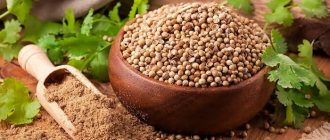Expecting a child is a joyful and exciting moment for every mother. And even with the most ideal pregnancy, there is always a risk of catching colds. In this case, both the course of the disease itself and the treatment can be dangerous for the child, since all medications have an effect, even if insignificant, on the development of the baby.
Today we will talk about the most common ailments, from which rarely anyone can protect themselves in the spring-autumn period. Acute respiratory infections and acute respiratory viral infections often lead to inflammation of the respiratory tract and a common cough. Can licorice roots be consumed during pregnancy? Let's figure it out together.
What kind of remedy
Licorice root syrup is intended for internal use. It is a viscous brownish and sweet liquid with a specific odor. The product has a complex effect. The medicine contains saponins, which are organic compounds of natural origin. Saponins are irritating, but in small dosages they enhance secretory activity in the respiratory structures. Under the influence of the drug, there is an increase in sputum secretion, helping it to quickly and easily exit the bronchopulmonary system. Therefore, medicine from licorice root during pregnancy is prescribed as an effective expectorant. You just need to take it strictly as prescribed by your doctor.
- Licorice or licorice contains organic flavonoids, which belong to the category of antioxidants. They ensure the normal course of almost all physicochemical intraorganic processes at the level of molecular structures.
- It also contains vitamin C, which also has powerful antioxidant properties and also helps accelerate tissue regeneration and healing.
- Ascorbic acid effectively evacuates toxic substances and various metabolites from the body. As a result, licorice syrup during pregnancy effectively eliminates intoxication symptoms such as hyperthermia, arthralgia, migraines and nausea. Also, under the influence of vitamin C, the immune barrier is strengthened and the protective properties of the mucous membranes of the respiratory system are increased.
The complex effect of the drug is to stimulate the functionality of the endocrine glands and provide a slight laxative, as well as enveloping effect and an irritating effect on the mucous structures of the intestines and respiratory system.
Licorice in preparation for pregnancy, gestation and lactation
Naturally, pregnancy is not a disease at all. But this condition requires a particularly careful attitude towards oneself and a revision of even useful, from the point of view of the pre-pregnancy state, habits.
Doctors do not at all seek to intimidate patients by prohibiting them from taking a medicine that seems harmless at first glance. There are serious reasons for such recommendations.
For example, the ability to influence the water-salt balance, if taken by pregnant women, instead of benefit, can cause rather dangerous consequences for the body.
First, the functioning of the kidneys is disrupted, then congestion develops in the vascular system, and the functioning of the brain deteriorates.
The main danger of gestosis is convulsions. They can stimulate labor or acquire dangerous intensity, due to which doctors have to perform a caesarean section to save the life of the mother and child.
Also, licorice root can actively influence the functioning of the adrenal cortex, which secretes the most important hormone for the female body - estrogen. During pregnancy, even minor “supplements” of this hormone from the outside immediately change the general hormonal background of a woman and act as an abortion provider, that is, they stimulate a miscarriage.
Thus, the glycoside glycyrrhizin or glycyrrhizic acid contained in licorice root promotes fluid retention. And this is a risk of edema and increased blood pressure. Licorice root can increase estrogen levels and disrupt hormonal balance.
Mechanism of action
Licorice root in the form of syrup provides a complex therapeutic effect, which consists of antimicrobial, antispasmodic, expectorant and anti-inflammatory effects. The agent is especially active against pathogenic microorganisms from the group of staphylococci.
Use any product with caution
The use of syrup helps to increase mucus formation in the structures of the gastrointestinal tract, which helps reduce gastric acidity, accelerate the healing process of ulcerative lesions, and also increase organic resistance. Licorice has a pronounced expectorant effect; it thins mucus and facilitates its evacuation from the respiratory tract. One of the beneficial effects of the syrup is to relieve acute attacks of wet cough, while simultaneously healing the smallest cracks that form in the respiratory tract during coughing.
Thanks to this effect, licorice has become indispensable in the treatment of coughs and colds associated with respiratory lesions. The drug is suitable for patients of any age, only in different dosages. And if you dilute the syrup with cooled boiling water, you can even give it to babies.
Composition and properties of licorice root
Licorice is a medicinal plant, the rhizome of which is of particular value for fans of alternative medicine. Its healing properties were first discovered in the East several thousand years ago, although later references to this plant were discovered in the ancient Chinese Treatise on Herbs. It turns out that this plant was used for medicinal purposes even before our era.
The licorice rhizome contains glycyrrhizin and numerous derivatives of glycyrrhizic acid, almost 30 flavonoids, mono- and disachrides, starch, pectins, resins, bitter substances, phenolcarboxylic acids, coumarins, tannins, alkaloids, essential oil and organic acids.
As for micro- and macroelements, licorice contains potassium, calcium, magnesium, manganese, iron, zinc, boron and other substances.
The composition of licorice, which is also called licorice, resembles the periodic table. Over time, scientists were able to study every component present in the root of this plant and create many modern drugs based on these components. Thanks to this, it was possible to find cures for some incurable diseases.
Licorice roots have antispasmodic, expectorant and anti-inflammatory properties. Over the years, the plant has been used to treat tuberculosis, bronchitis, chronic constipation, poisoning, disorders of various types of metabolism, as a diuretic, hemorrhoids, stomach ulcers and even oncology.
Today, licorice rhizomes are used:
- In the treatment of diseases of the upper respiratory tract. The plant is able to thin the mucus in the bronchi, bringing out phlegm with a large number of microbes. Nowadays, licorice is used in complex therapy in the treatment of tuberculosis, tonsillitis, pneumonia, and laryngitis.
- In combination with pharmaceutical drugs, enhancing their therapeutic effect.
- In the fight against various types of inflammation.
- For spasms of smooth muscles, pain in the heart, pathologies of the cardiovascular system, and diseases of the thyroid gland.
- To restore pancreatic function. Licorice stimulates the production of your own insulin, and glycyrrhizic acid is often included in sweeteners.
- To neutralize certain toxins (for example, alcohol poisoning).
- For the prevention and treatment of cancer, prostate adenoma.
- For gastrointestinal diseases and constipation.
- In the treatment of allergies and skin diseases.
- For the prevention and improvement of inflammation of the bladder and kidneys.
- For the treatment of arthritis, rheumatism and other joint diseases.
- For mood swings, increased fatigue, and a tendency to depression.
- For the treatment of radiation damage to the body.
- In the fight against tobacco addiction.
The list of beneficial properties of licorice is almost endless. Licorice root is used to prevent diseases of the digestive organs and improve digestion, to remove waste, toxins and cholesterol from the body, to normalize hormonal levels and all types of metabolism, to strengthen the immune system and prevent diseases of teeth and gums.
However, there is one more property that makes licorice a plant that should not be used during pregnancy: in ancient times, it was used as a contraceptive.
More on the topic
Is it possible to avoid toxicosis during pregnancy?
Can there be toxicosis during a frozen pregnancy?
Kidney treatment during pregnancy
Safe treatments for colds in pregnant women and preventive measures
Can pregnant women use tansy?
Indications
Licorice root syrup is prescribed for pathologies such as bronchitis, laryngitis, pharyngitis or other pathologies of the respiratory system. This syrup is excellent for coughs in smokers, as well as for gastritis and ulcerative processes in the gastrointestinal tract.
The remedy is also used for pyelonephritis, pyelitis, hypofunction of the adrenal cortex, etc. Sometimes herbal syrup is prescribed as part of complex therapy for dermatitis of various etiologies, as well as rheumatism and hemorrhoids, gout or eczema.
Why is it prescribed to pregnant women?
There is no exact information regarding the effect of syrup on pregnancy. The degree of penetration of the drug into the bloodstream, the options for its distribution and metabolism are also unknown. Therefore, in the instructions for the drug, the manufacturer indicates that the syrup is contraindicated during pregnancy due to its effect on hormonal levels.
That is why, when using syrup, pregnant patients should be extremely careful and take it only as prescribed by an obstetrician-gynecologist. During pregnancy, syrup is prescribed for similar indications, i.e. for bronchitis and pneumonia, asthma and atelectasis, bronchiectasis, etc.
Contraindications to the use of the drug
Licorice root is considered a very good, time-tested remedy, which has been used for a long time in folk and traditional medicine. However, despite the good effect of this remedy, there are certain contraindications. Doctors do not recommend using this remedy for:
- pregnancy;
- breastfeeding;
- diabetes mellitus;
- hypertension;
- some kidney and liver diseases.
Therefore, during pregnancy, you need to be very careful about this medicine and consult with your gynecologist.
How to use for pregnant women
Licorice contains plant hormones such as saponins, steroid glycosides or estriol. These bioactive components disrupt the hormonal balance in the pregnant woman’s body. Such a condition can threaten the normal course of gestation and fetal development, especially in the 1st trimester, when the most important gestational processes of the formation of fetal organs and systemic structures occur.
Early dates
Licorice has a beneficial effect on the respiratory structures, but due to its ability to increase estrogen content, the plant is not recommended for the treatment of pregnant patients. Therefore, during the weeks of the first trimester, the use of such a medicine is strictly unacceptable.
- Unauthorized intake of licorice root syrup can provoke a sharp critical increase in estrogen, which is fraught with hormonal disruptions and interruption of pregnancy.
- While taking the syrup, an allergic reaction, even Quincke's edema, may occur.
- It is possible to develop eclampsia, accompanied by hypertensive crises and extensive hyperedema with an increased threat of interruption.
- When taking licorice root, a disorder of water-salt metabolism occurs, which is fraught with increased toxicity and impaired renal function.
Due to these dangerous complications, taking any product containing licorice root is dangerous in the first trimester of gestation.
In the 2nd-3rd trimester
Listening to your baby's breathing is real happiness
If a girl needs antitussive therapy, then from about 14 weeks, i.e. from the second trimester, the use of licorice root syrup is allowed, but only with caution and under the supervision of an obstetrician-gynecologist. During therapy, it is necessary to clearly monitor changes occurring in adrenal activity, monitor blood pressure and general blood test parameters. If swelling and other gestational symptoms appear, therapy is stopped. In general, the 2nd trimester is considered the safest period for taking licorice syrup.
The third stage of gestation is also considered not the best time for treatment with licorice root. Due to hormonal imbalance and adrenal disorders that occur while taking syrup, a pregnant woman may experience premature delivery or the natural birth processes may be disrupted.
Dosage and features of administration in pregnant women
So, in the second stage of gestation, if the need arises, the doctor can prescribe licorice root to a pregnant patient suffering from a strong, debilitating cough. You need to take the syrup orally three times a day, one measuring spoon or a tablespoon in half a glass of water. The course of therapy is about one to one and a half weeks. If necessary, the gynecologist will extend the course of treatment.
You can take the plant syrup in its pure form or dilute it with warm boiled water. When pregnant while taking this herbal medicine, pregnant women need to be extremely careful. Taking the drug during pregnancy is prescribed when other drugs are useless, and treating a cough with synthetic antibiotics is more dangerous for women than with licorice root.
The syrup should be taken only under the supervision and as prescribed by an obstetrician-gynecologist. Independent use of any products based on this plant is strictly prohibited and can lead to irreversible and sometimes disastrous consequences. If a pregnant woman is at risk of miscarriage, then treatment with such a remedy will have to be abandoned. Also, mothers who are prone to bleeding should not take licorice syrup.
What are the benefits of herbal remedies?
Despite the fact that licorice syrup is prohibited during pregnancy, in general it is quite healthy.
The medicine contains asparagine, vitamins, cyrrhizic bitterness, linveritic acid, flavone glucosides, glucose, calcium and potassium salts, glycyrrhizic acid, glycyrrhizin, which is 50 times sweeter than sugar, but acts in a similar way to the steroid hormone cortisone.
The following types of drug effects are distinguished:
- anti-inflammatory,
- antihistamine,
- tonic.
In addition, it helps regulate the water-salt balance and has a tonic effect. Despite the fact that doctors do not recommend licorice during pregnancy, it can strengthen the immune system. In addition, it can be used to prevent or cure diseases in which the child’s central nervous system is inhibited.
The whole truth about Lugol during pregnancy and Mezim during pregnancy.
The drug is often used as an antidepressant. The drug is used for a diuretic or choleretic effect. Its therapeutic effect is expressed in several conditions.
- Relaxation of smooth muscles.
- Stimulating the production of gastric secretions.
- Decreased secretion of the digestive gland.
If you are pregnant, be sure to ask your doctor if you can drink the popular licorice root. In most cases, the specialist will recommend a different drug.
For consultation
In addition to the fact that licorice syrup is prohibited during pregnancy, the instructions for use indicate the diseases that the drug copes with:
- diabetes;
- chronic pathologies of the liver and biliary tract;
- acute chronic pyelonephritis;
- hypofunction of the adrenal cortex;
- skin diseases (allergic dermatitis, dermatitis, psoriasis);
- chronic gastritis;
- peptic ulcers of the stomach and duodenum;
- chronic spastic colitis with a tendency to constipation;
- respiratory tract diseases (bronchial, pulmonary pneumonia, bronchitis, whooping cough);
- obesity in childhood;
- poisoning;
- radiation contamination;
- Addinson's disease.
The product softens the throat well during coughing and helps reduce growing tumors. It also stimulates the normal functioning of the stomach, gastrointestinal motility, and helps strengthen the natural and natural forces of the body. The drug is often used to treat cough in young children. Licorice is especially dangerous during early pregnancy. More on this below.
During pregnancy in the 1st trimester, licorice syrup, known to many, can cause many diseases. These include.
- Allergic reaction.
- Impaired functioning of the liver and kidneys.
- Hypokalemia.
- High blood pressure.
These pathologies are very dangerous during pregnancy, so the drug is not prescribed during pregnancy in the 1st-3rd trimester.
The water-salt balance may be disrupted due to prolonged use of the medication, and this is very harmful to the expectant mother. The problem is dangerous due to the rapid appearance of swelling of the extremities. In this case, you need to urgently stop taking it and take a course of diuretic medications.
Otherwise, gestosis may appear, which greatly complicates childbearing and can lead to premature birth. Therefore, during pregnancy in the 3rd trimester, the use of licorice syrup is especially dangerous.
Dangerous to use before childbirth
The medicine can affect the adrenal cortex and the production of hormones. Therefore, during pregnancy in the 1st, 2nd and 3rd trimesters, the medicinal root is not used. Usually the concentration of estrogen, which is the main hormone of expectant mothers, increases. At the same time, not only small, but also large amounts of hormones can negatively affect the development and health of the baby.
The instructions for using licorice root clearly state that it is prohibited during pregnancy. However, if a woman has always taken this drug and even now wants to take it, she should definitely consult with her obstetrician-gynecologist. Perhaps he will take a risk and prescribe a reduced dosage of the drug.
You should not prescribe medications on your own. Even if you previously drank only them because you were happy with the effect they had, serious changes occur in the body during all three trimesters. He may react negatively to a seemingly familiar medicine.
| Advantages | Flaws |
| Has a pronounced therapeutic effect | Changes water-salt metabolism |
| Copes with a wide range of diseases | Causes hormonal activity |
I took licorice root, although I didn’t know if this medicine could be taken during pregnancy. I was suffering from a severe cough, so I bought the product. The doctor swore terribly when she found out and immediately prescribed another drug.
I took licorice root syrup when I was treating gastritis during pregnancy. I have always taken it before, but it turned out that the drug is prohibited while carrying a child. I was scared, but everything turned out okay.
I was treated with the well-known licorice, because the doctor said that you can drink it during pregnancy. My mother, who is a doctor by training, intervened and said that the medicine was prohibited for expectant mothers. I had to change doctor. It is strange that she did not know about the properties of the drug.
Also find out the truth about Mucaltin during pregnancy and Nazivin drops during pregnancy.
- What can pregnant women drink when they have a cold?
- Prescription of Drotaverine during pregnancy
- Is it possible to drink Suprastin during pregnancy?
- Can I take Theraflu during pregnancy?
- Vilprafen during pregnancy - reviews of the drug
- Is it possible to drink Arbidol during pregnancy?
During pregnancy, it is strictly forbidden to use licorice syrup, but in general it is, of course, quite useful. If you carefully study the composition of the drug, you will notice that it contains various vitamins, glucose, calcium, potassium salts, etc.
In addition to all that has been said, the drug is able to regulate the water-salt balance, providing a tonic effect. As the doctors themselves say, while in pregnancy, licorice can harm the body of the expectant mother, but in general, it does a good job of strengthening the immune system.
Often this particular remedy is used as an antidepressant; it is ideal not only for its diuretic, but also for its choleretic effect.
Adverse reactions
During treatment with licorice root, adverse reactions such as dizziness and nausea and vomiting syndrome, liver dysfunction and arthralgia may occur.
- Pregnant women have a more numerous list of adverse reactions, so this drug should be taken only as directed and under medical supervision.
- With indiscriminate intake of licorice root, allergic reactions begin, the patient’s general condition worsens, a preeclampsia may develop, and the production of estrogen hormone increases.
- Hyperestrogenism is fraught with pathological disorders and also threatens the full development and viability of the baby.
- With prolonged use of licorice root syrup, the water balance is disrupted, which can lead to dehydration.
- Also, a side effect of using syrup is an increase in blood pressure, which must be taken into account by people suffering from hypertension.
- It causes syrup and drowsiness, so you should not take it before a planned trip while driving or when working with machinery.
If mommy overdoses on the drug, the severity of adverse reactions increases noticeably. To exclude undesirable consequences from taking an increased dose of medication, you need to consult a doctor to receive symptomatic therapy. If you take the product strictly according to the instructions or regimen prescribed by a specialist, then no adverse reactions or excess dosage will follow.
Contraindications
Although the syrup is made from plant materials, there are some conditions for which it is strictly not recommended to take it. Experts identify general contraindications for taking licorice root, which include acute ulcerative pathology of the gastrointestinal tract. It is also forbidden to take licorice root syrup if you have an individual intolerance to the drug or hypersensitivity to it.
Also, diabetics should not take licorice syrup, and women during pregnancy or lactation can take the drug only as prescribed by a gynecologist.
Recommendations for pregnant women
There will be no negative reaction due to taking the medicine if you take it correctly, strictly according to indications and after agreement with the obstetrician-gynecologist monitoring the pregnancy. Liquorice syrup should not be taken in combination with diuretics, otherwise potassium deficiency may occur, which is dangerous during gestation. The licorice drug is also incompatible with drugs of the glucocorticosteroid pharmacological group. With this combination, licorice aggravates the adverse reactions that occur as a result of taking glucocorticosteroid drugs.
Due to the presence of sugar, taking syrup is difficult for diabetics and obese patients.
It is better to take licorice syrup after meals in order to maximally eliminate possible negative reactions in the structures of the gastrointestinal tract. Sometimes taking the drug provokes constipation, less often it can lead to the development of diarrhea. Sometimes taking the drug causes nausea and vomiting reactions. There is no accurate information confirming the harm of licorice root. Many pregnant women who have cured their cough with this remedy note the absence of negative effects in their babies. But although there is no scientific evidence of the negative effects of licorice, it is better to refrain from independently prescribing and taking licorice root syrup.
What complications can arise as a result of treatment with licorice in pregnant women?
In the 3rd trimester
During pregnancy, a woman needs to especially carefully monitor her health. Any infection can harm the baby, if not on its own, then by treating it and taking medications that cannot be completely avoided. Therefore, it is better for the expectant mother to use prevention methods that will help avoid diseases during the season of colds and infections:
- limit the time and frequency of stay in public places;
- monitor nutrition, hygiene, sleep and rest patterns;
- after visiting public places, it will be useful to rinse the nasal mucosa with regular saline to avoid contracting viral infections;
- avoid hypothermia.
The following will help relieve the symptoms of a developing cold in a pregnant woman:
- warm, generous drink (dried fruit compote, fruit drink, tea with honey, raspberries, etc.);
- bed rest;
- cool, fresh and moist air in the room (ventilate and moisten often).
Simple folk recipes will help relieve throat irritation and improve coughing:
- In a mug of warm milk, melt a piece of butter, a teaspoon of honey and add a pinch of soda. Drink slowly in small sips.
- Mix warm milk and mineral water in a 1:1 ratio and drink in small sips.
Inhalation with saline solution or Borjomi mineral water will help relieve dry cough. For inhalations it is better to use a nebulizer, then they can be used even at elevated temperatures.
Many people consider herbal treatment to be absolutely safe and use it in any situation. Unfortunately, herbal medicines also have their contraindications, and adverse reactions from their use can be unpredictable. A pregnant woman should remember this and under no circumstances prescribe treatment for herself.
We suggest you read: Pneumonia during pregnancy, consequences for the fetus
1 dessert spoon (10 ml) is dissolved in 12 glasses of water. Take 3 times a day. Treatment lasts 7-10 days.
Doses for children:
- children under 2 years old - 1-2 drops of syrup diluted in a teaspoon of water, taken 3 times a day
- children from 2 to 12 years old - 12 teaspoons of syrup diluted in 14 glasses of water, taken 3 times a day
- children over 12 years old - 1 teaspoon of syrup diluted in 12 glasses of water, taken 3 times a day
The main dangers for pregnant women that result from taking medications based on licorice root are disturbances in water-salt metabolism in the body and excessive activity of the adrenal glands. These complications, as a rule, are just the “tip of the iceberg”, because every woman’s body is unique.
And the complications “promised” by the doctor may add their own, depending on the specific organism. For example, disturbances in water-salt metabolism, even in the mildest form, mean excess weight, which means additional stress on the heart, muscular system, skeleton and spine.
Hormonal “jumps” are fraught with sudden changes in mood and the development of depressive states. Depression is a difficult experience even for the average person. And during pregnancy, an additional stress factor is far from the best option.











